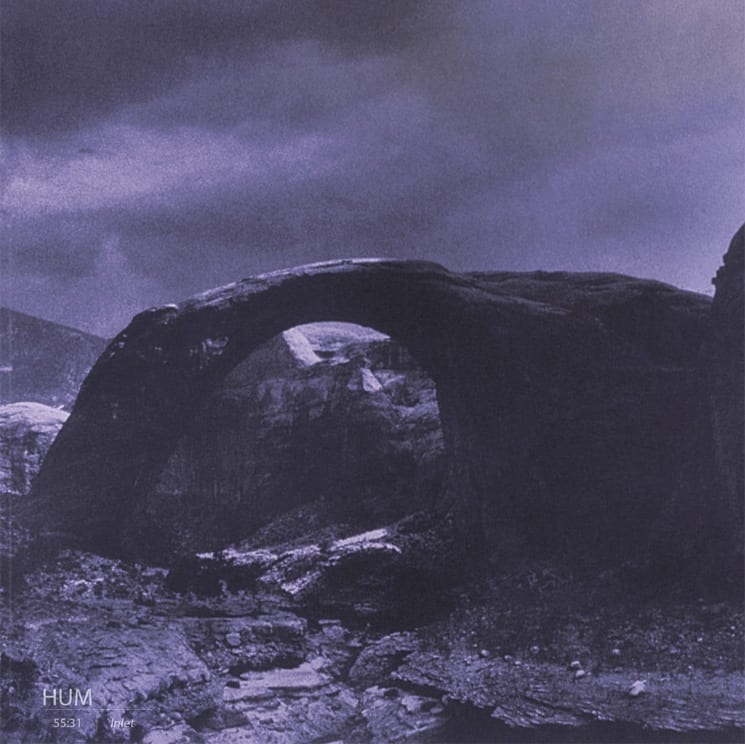22 years removed from their last release, Hum have returned with Inlet, their best album to date. Since 1998's Downward Is Heavenward, they've influenced just about every recognizable strand of alternative rock around. You don't get the heft of Isis, the haze of DIIV or the sincerity of Touché Amoré without Hum. There's also a special kind of synchronicity in Inlet dropping just three days after the 20th anniversary of Deftones' White Pony, an album that wears the Hum influence quite literally on its sleeve.
Inlet makes clear that, despite the pervasive influence and time away, the Champaign, IL, quartet are not a legacy act. Hum have outworked themselves on many fronts. "The Summoning" features some of the heaviest riffs in the bands catalogue and moves with a lurching pace that typifies much of the album. One of four tracks that exceeds an eight-minute runtime, "Desert Rambler" gently unfurls to reveal the most mature and arresting vocal performance of Matt Talbott's career. The production was handled in-house, a fact that makes sense of some of the idiosyncratic but effective choices throughout. "Cloud City," for example, elevates a guitar solo with ethereal pads that threaten to overwhelm the mix each time they appear.
What sets Inlet apart from its predecessors is not that it is heavier, more able to take advantage of hooky vocal melodies, more sonically adventurous or more organically produced — those dimensions were present on albums past. Inlet is not a powerful album because it does more. Inlet is powerful because it exudes grace. The guitar slides that introduce "Desert Rambler" would sound ill-timed if not for the utter confidence on display throughout the rest of the track. The distorted guitar swells that mark a shift in the dynamics of "Cloud City" are sloppy by most other records' standards. Here, they are charming. Most of the back half of "Folding" is taken up by an unassuming drone. Consider the maturity required to end a record, full of peaks and valleys, the way Hum does on "Shapeshifter." These are markers of musicians sure of themselves, sure of each other and sure of their songs.
(Polyvinyl)Inlet makes clear that, despite the pervasive influence and time away, the Champaign, IL, quartet are not a legacy act. Hum have outworked themselves on many fronts. "The Summoning" features some of the heaviest riffs in the bands catalogue and moves with a lurching pace that typifies much of the album. One of four tracks that exceeds an eight-minute runtime, "Desert Rambler" gently unfurls to reveal the most mature and arresting vocal performance of Matt Talbott's career. The production was handled in-house, a fact that makes sense of some of the idiosyncratic but effective choices throughout. "Cloud City," for example, elevates a guitar solo with ethereal pads that threaten to overwhelm the mix each time they appear.
What sets Inlet apart from its predecessors is not that it is heavier, more able to take advantage of hooky vocal melodies, more sonically adventurous or more organically produced — those dimensions were present on albums past. Inlet is not a powerful album because it does more. Inlet is powerful because it exudes grace. The guitar slides that introduce "Desert Rambler" would sound ill-timed if not for the utter confidence on display throughout the rest of the track. The distorted guitar swells that mark a shift in the dynamics of "Cloud City" are sloppy by most other records' standards. Here, they are charming. Most of the back half of "Folding" is taken up by an unassuming drone. Consider the maturity required to end a record, full of peaks and valleys, the way Hum does on "Shapeshifter." These are markers of musicians sure of themselves, sure of each other and sure of their songs.




